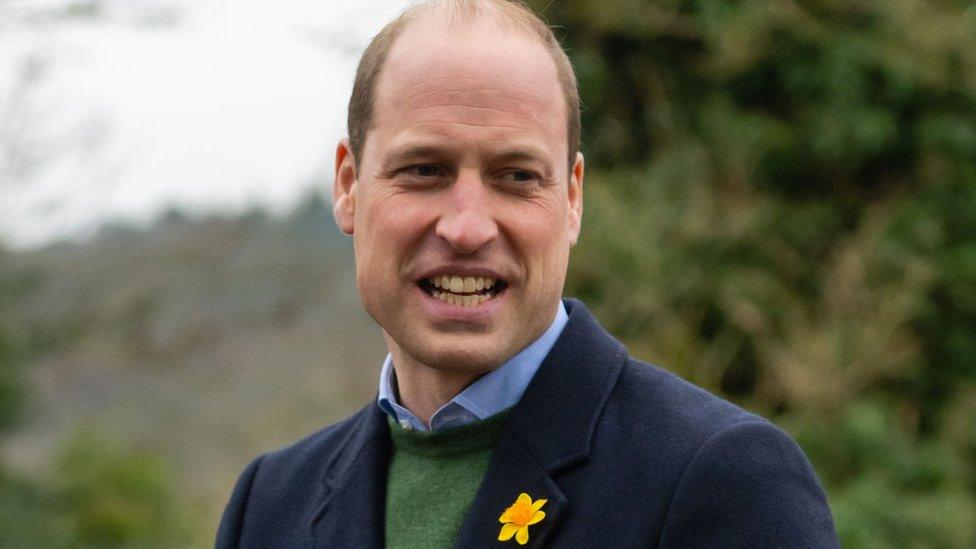King Charles coronation: How Wales helped make a monarch
- Published
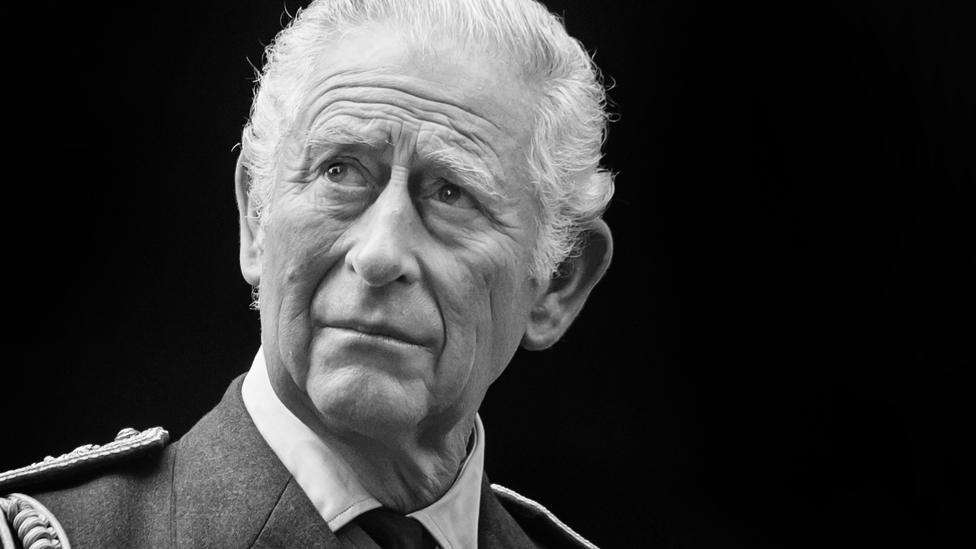
King Charles III was the Prince of Wales for 64 years, longer than any of his predecessors
A distinctly Welsh thread will weave through the King's coronation ceremony on Saturday at Westminster Abbey.
The presence of the royal harpist and Sir Bryn Terfel, along with the Welsh words that will be sung in Westminster Abbey, reflect the commitment Charles showed to promoting Welsh culture during his 64 years as Prince of Wales.
But how much did Charles influence Welsh life, and what did Wales do to the man who would be king?
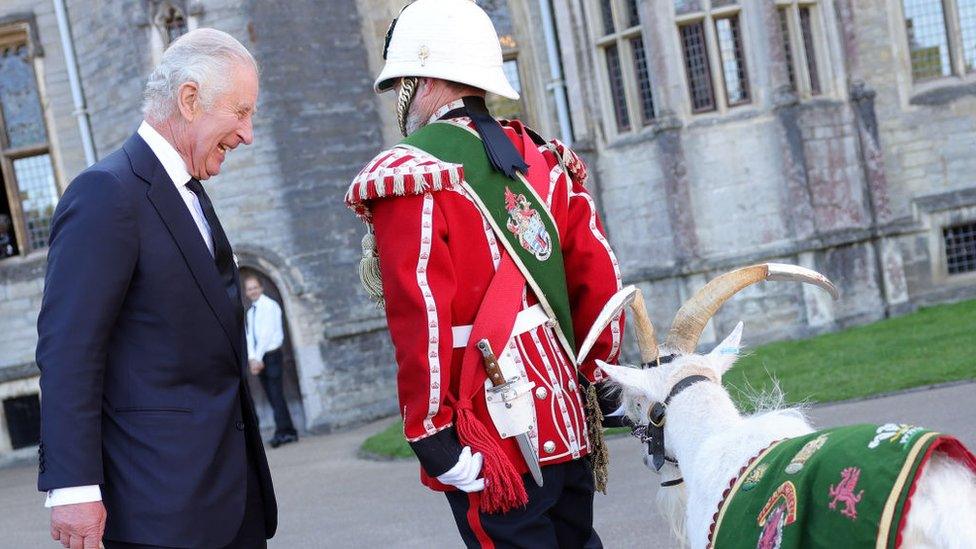
Charles at Cardiff Castle during his first visit to Wales as King
There is little doubt in the mind of Dame Shân Legge-Bourke about the affection Charles had for Wales.
She remembered hosting the young Prince of Wales at her home on the Glanusk Estate near Crickhowell, Powys, where he went to "retreat" while studying for a term at Aberystwyth University in 1969.
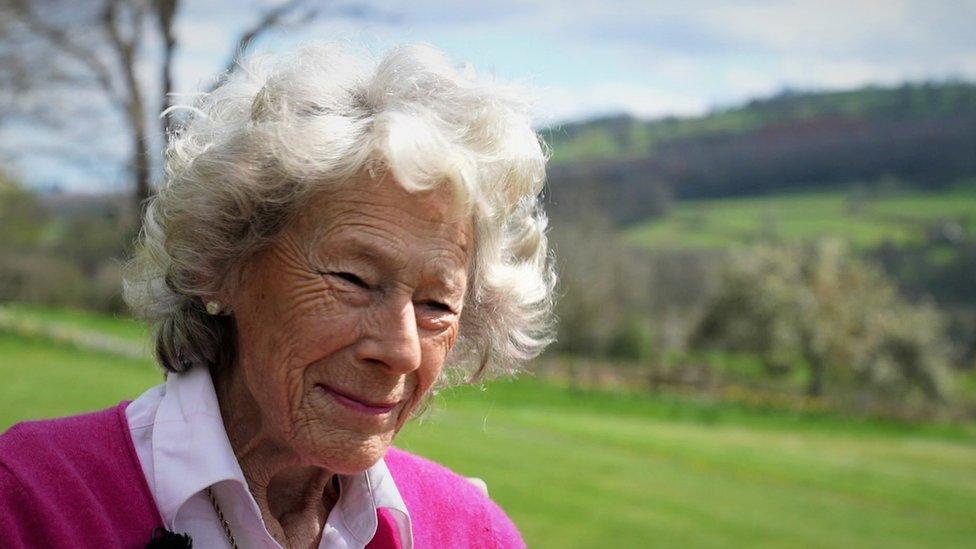
Dame Shân Legge-Bourke hosted King Charles for a retreat in Powys
"It was a good place for him," Dame Shân recalled. "He loved fishing, and so he could come here and completely switch off on his own, with nobody else around. Rod in hand, and catch fish."
The solitude was rare for a young, shy prince.
"Nobody knew he was here. And in those days we didn't have any paparazzi. Not to the extent that we do now. Nobody had a clue when he was coming, or when he left."
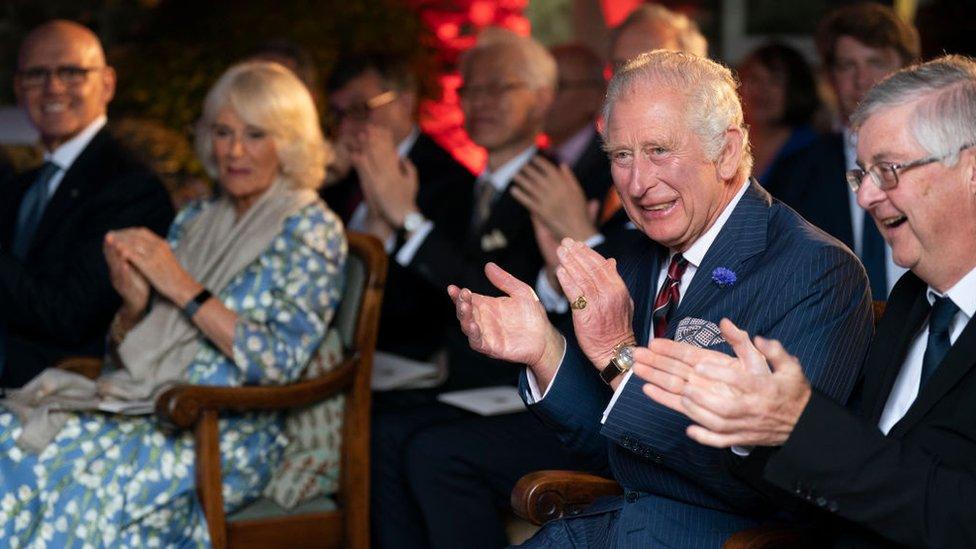
Charles and Camilla celebrating Welsh culture with the First Minister Mark Drakeford at their home in Carmarthenshire
In the years since Dame Shân regularly met Charles during his visits as Prince of Wales, where she would witness his ability to charm and engage the people he met on the showground at the Royal Welsh Show.
"He would spot a badge on a lapel - supporting a rare breed, or bees - and literally stop as everyone is walking, and have a lovely conversation with them."
It showed the depth of his connection, Dame Shân argued, and that he was more than a figurehead on hand to cut a ribbon.
"I think it's what people have become aware of over the years, since he was a young man at Aberystwyth," she said.
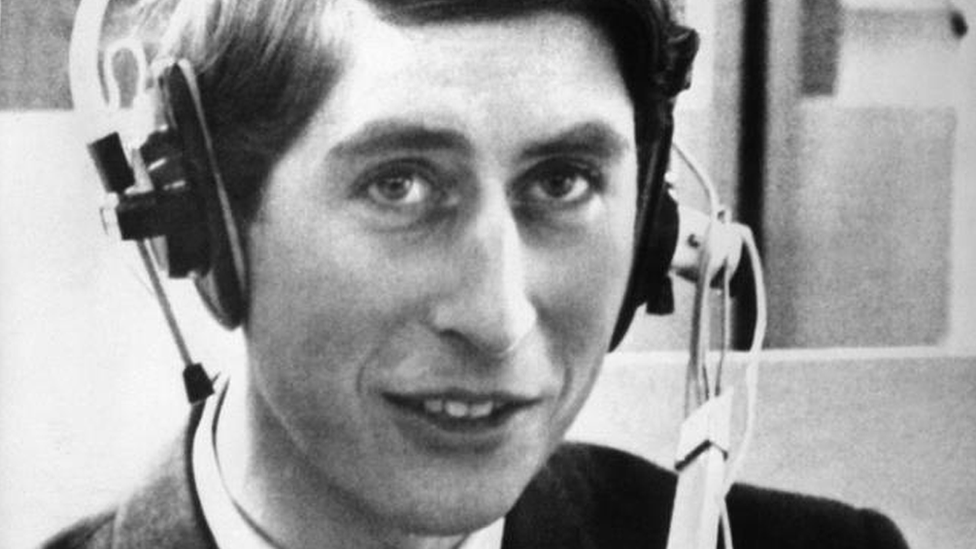
Prince Charles learning Welsh at an Aberystwyth University language laboratory in 1969
When King Charles is crowned he will be the first monarch since Elizabeth I to be able to speak Welsh.
His Welsh crash course taken at Aberystwyth has allowed him to deliver speeches and greet friends in Welsh.
He also used it on several visits to the Senedd, where the former Presiding Officer Lord Elis-Thomas felt the monarchy had been essential in giving credibility to the young institution.
"Not only the credibility, but they were crucial, I believe, in it receiving a huge majority of constitutional support in Wales and beyond," he said.
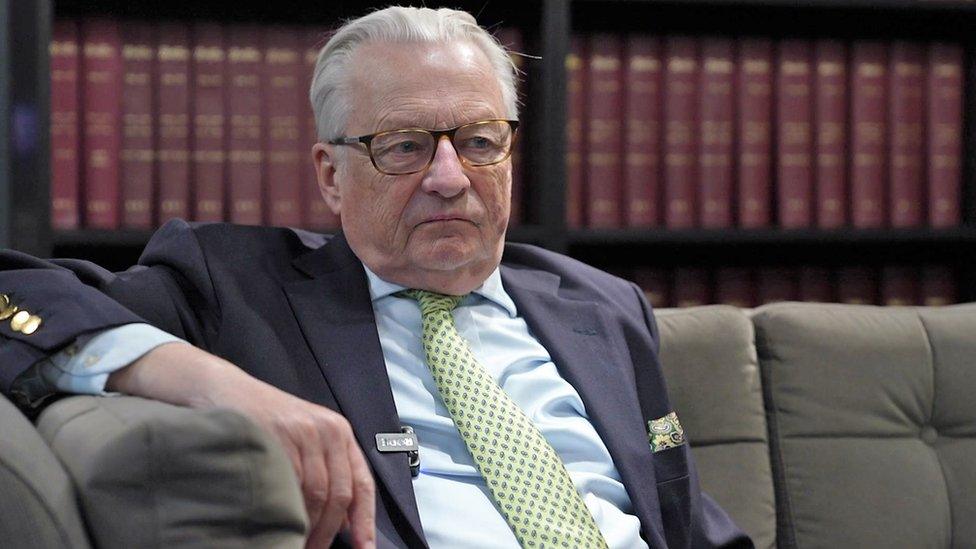
The royal family was "crucial" to devolution says former Senedd Presiding Officer Lord Elis-Thomas
"In the making of early devolution, the contribution of the head of state, and the royal family, was crucial," Lord Elis-Thomas added.
He believes the Prince of Wales, a title now passed on to his son William, should be treated as more than a figurehead in Welsh life.
"I think it means that there is a continuity of the role of what I see, in my interpretation of the constitution, as a sort of devolved head of state for Wales.
"That's what I never thought could happen. But I thought it was always important to try to promote it as an idea."
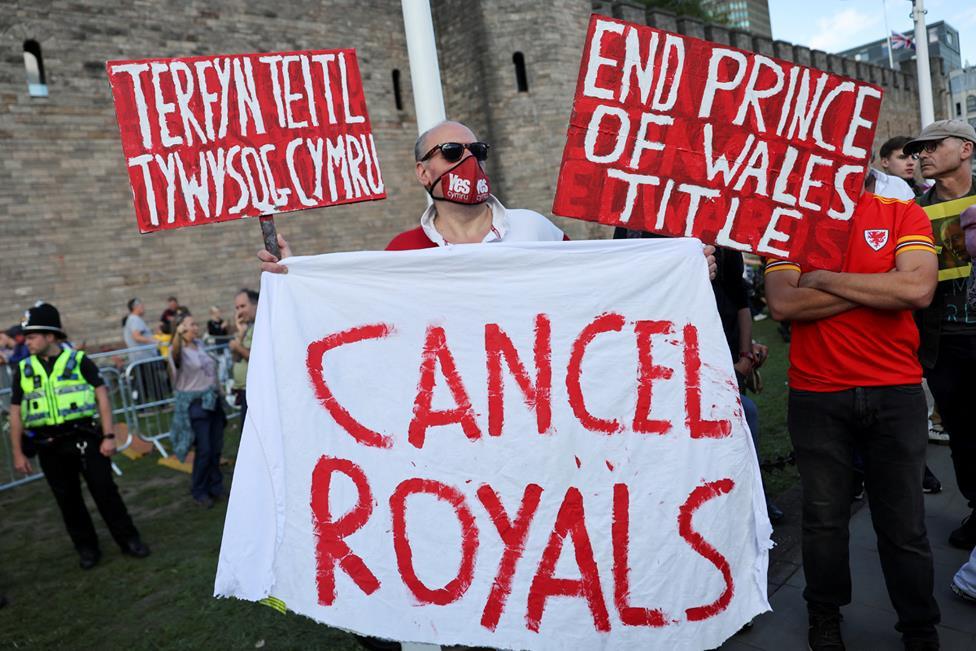
There were protests during King Charles's visit to Cardiff Castle after his accession to the throne
By his own account, Lord Elis-Thomas has been on quite a journey in his attitude to monarchy and his relationship with the King.
Other Welsh nationalists and republicans had been less enamoured with the presence of the Prince of Wales.
Some anti-monarchy Senedd members boycotted official visits.
But the former Plaid Cymru politician Helen Mary Jones said she took a pragmatic approach.
"I completely understand my colleagues who took another route, and took a much more absolutist position," she said.
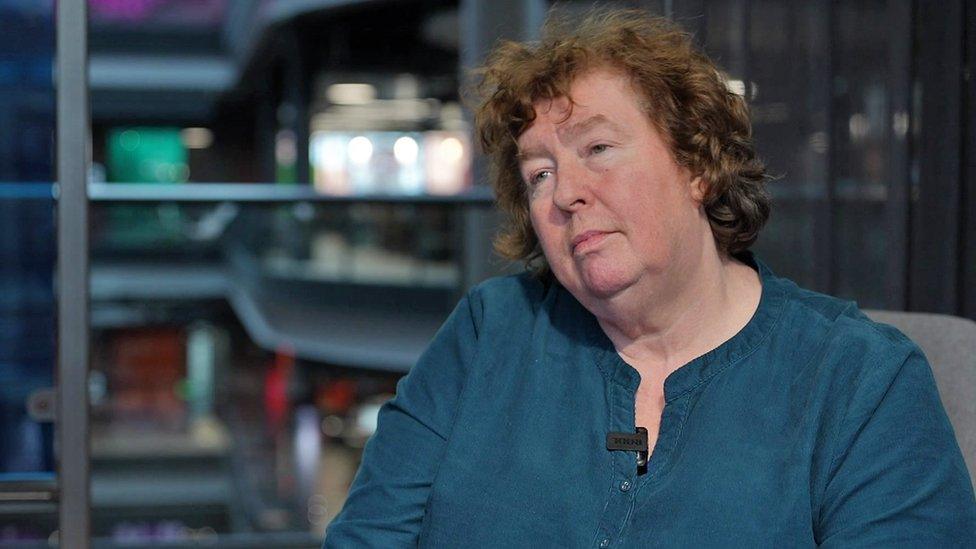
Welsh republican Helen Mary Jones said she chose to work with King Charles when he was Prince of Wales
Citing the respect that many in her constituency had for the monarchy, she said she chose to engage with the Prince of Wales and respect the royal openings of the Senedd.
"My republicanism is part of my politics, but it's not perhaps as central to my politics as it is to some other people. And there are so many institutions that you don't necessarily approve of. But if you need to work with them to get things done, then you do," she added.
Part of Ms Jones's pragmatism came after witnessing the impact the prince's charities, such as the Prince's Trust and Business in the Community, could have on specific projects and individuals.
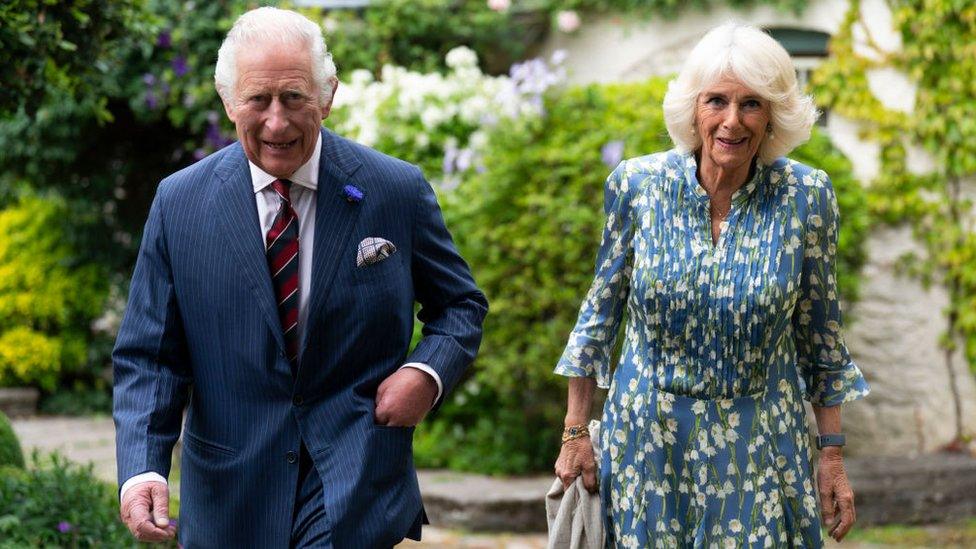
King Charles and Camilla at Llwynywermod the royal estate near Llandovery, Carmarthenshire
Charles's friends say the decision to buy Llwynywermod, his home in Carmarthenshire, allowed him to forge closer ties with Wales and to host meetings to entertain and engage people with Welsh affairs.
His Welsh activity will reduce now that he is King, and his friend Justin Albert believes Charles will miss his time in Wales.
"I think he will miss, greatly, being Prince of Wales," Mr Albert said.
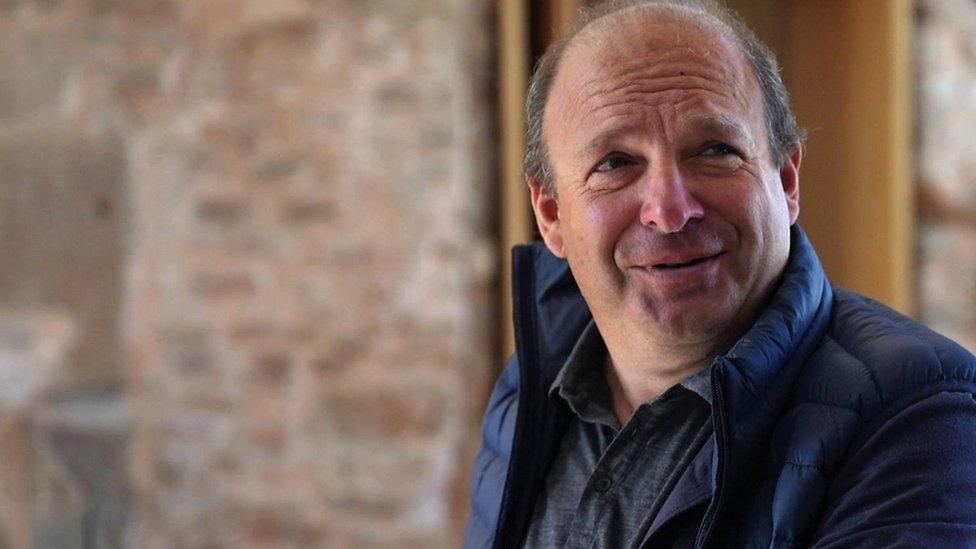
Justin Albert said the King will miss being Prince of Wales
"I think he grew into the job from a very young age, and became an exemplar of the role. But whether he's the Prince of Wales, a royal or a monarch or anything, it doesn't matter.
"He actually was someone who loved Wales. And that's what we need in Wales, we need people who genuinely love us."
For all of his efforts to deepen his connection with Wales, it has been a delicate relationship to manage.
The protests against his accession to the throne in Cardiff may have been small compared with the large crowd who welcomed him as King, but they were bigger than any opposition he had faced in Wales and represented the establishment of a louder anti-monarchy movement here.
The republican sentiment found a voice as he took the throne, and there will be further protests around his coronation.
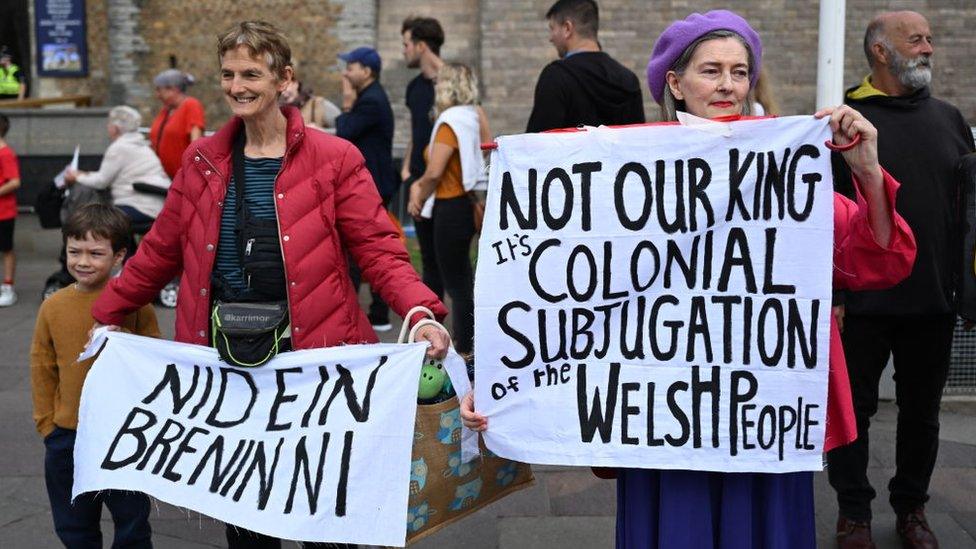
Protesters gathered outside Cardiff Castle when Charles was being proclaimed as the King
His friends point to Treorchy in July 2022 as a counterpoint to public opposition to Charles.
A couple of thousand people lined the high street in the Rhondda town to welcome Charles on what would become his last official Welsh tour as Prince of Wales.
The landlord of The Lion pub, Adrian Emmett, felt the support for the couple was representative of the mood at the time.
"It doesn't matter what your opinion was of the Royal Family, on the day the whole community came out," Mr Emmett recalled.
"We have all got memories from when we were younger when the Queen visited. So we are really thankful that we could give that memory to the younger generation as well."
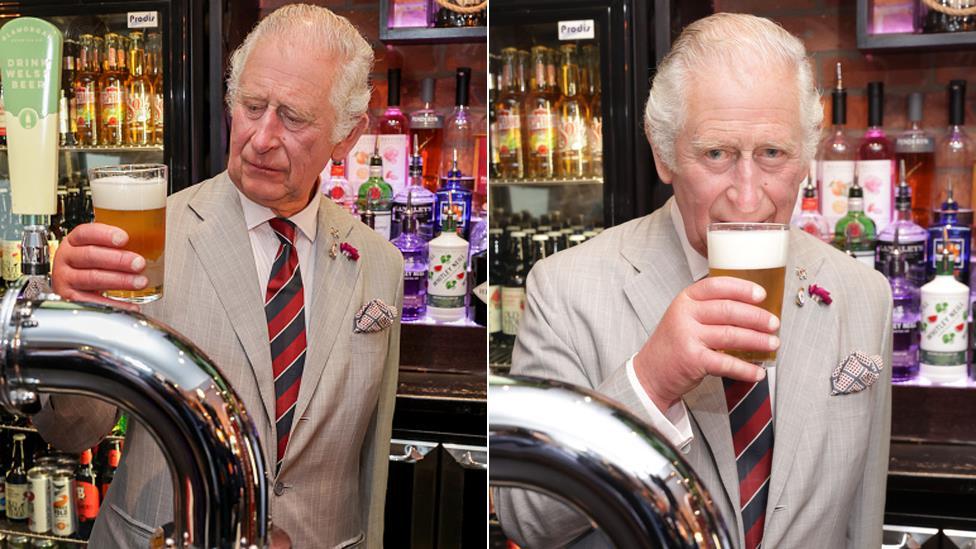
King Charles at The Lion pub in Treorchy during his last Welsh tour at Prince of Wales in July 2022
During his visit to the town the future King visited independent shops and spoke to some of the crowds who had lined the street.
"There was a massive buzz, not just then but for months afterwards," Mr Emmett said. "People still come into the pub and ask where was he stood, which pint did he pull."
And how did he rate the King's skill behind the bar?
"It wasn't the best pint! My customers would've complained about that, there was a bit of a head on it," Mr Emmett laughed.
King and Country: How Wales Made a Monarch will be broadcast at 16:00 BST on Saturday 6 May on BBC Radio Wales.
- Published29 April 2023
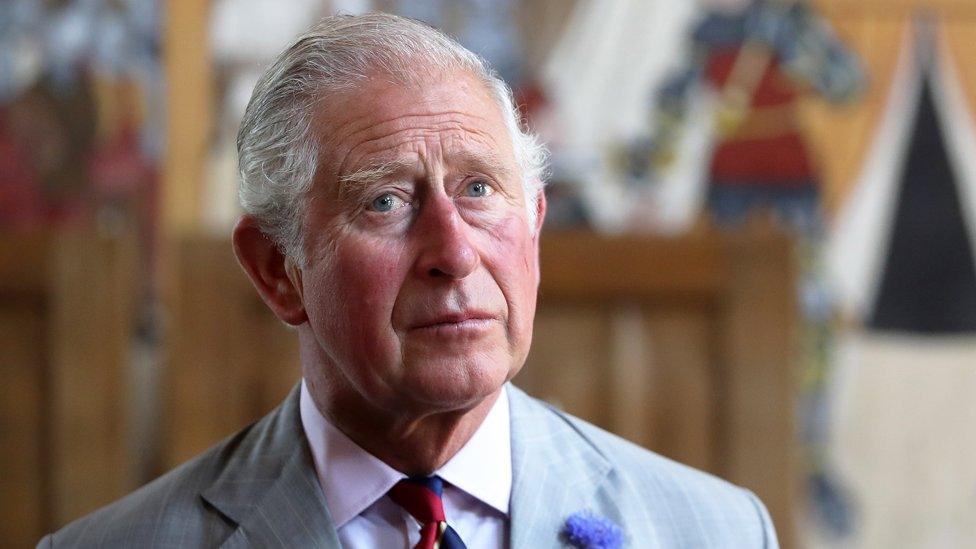
- Published16 September 2022
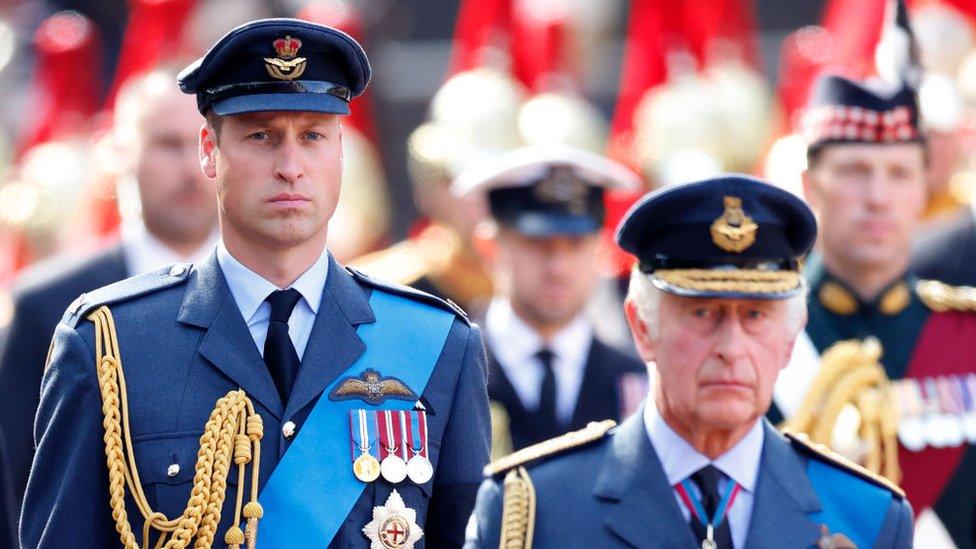
- Published16 September 2022
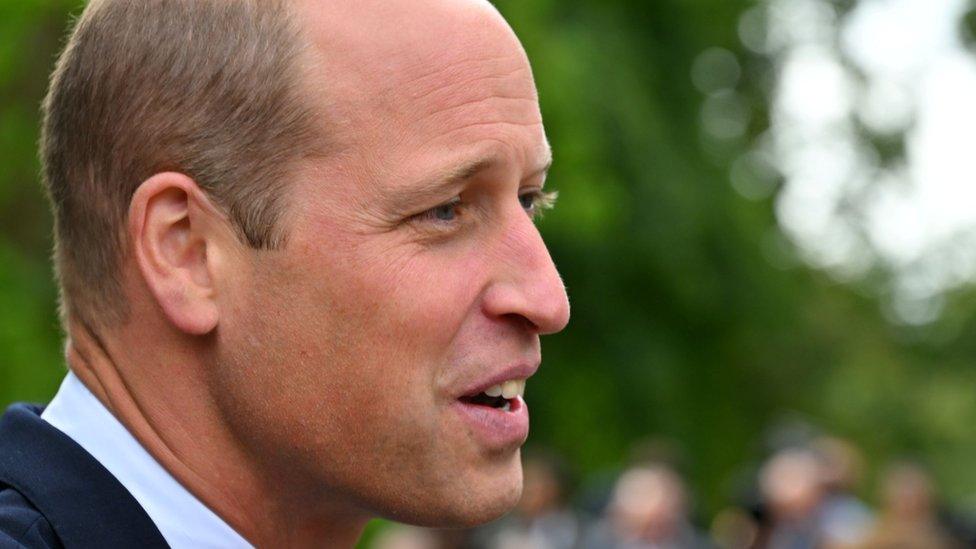
- Published11 September 2022
